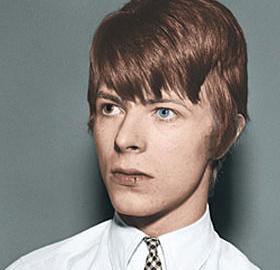Selling Out: The Joys of Adult Indie Easy Listening

It’s a torture to young people, of every generation, when its favorite musicians get “soft.” Like, when Peter Murphy, the lead singer of Bauhaus, started putting out post-New Wave solo records with backup singers. I felt this way (wrongly!) when Kristin Hersh started putting out gentle acoustic-guitar music. (She was on her way, however, to 50 Foot Wave, which has an even harsher sound than Throwing Muses ever did.) Or like when REM entered its endless middle period. And Siouxsie! (From goth to cheesecloth dancepop!) Some of them are like Jonathan Richman, who didn’t want to hurt any baby’s ears. More often it’s a subtle graduation — primarily because the recording artist can finally afford decent producers. (See: L7 and The Donnas, and, more extremely, Marilyn Manson or The Offpsring.) Let’s not even talk about David Bowie, with the zigging and the zagging between terrible and wonderful. (Even “dance” outfits can go soft, like the long late period of Saint Etienne, though to be fair, their last album was genius.) So many artists accidentally or intentionally enter the arena of Adult Indie. Which is already a crowded field!
The Delgados were roundly trounced and embraced for being stalwarts of “indie adult-contemporary.” Nitsuh Abebe wrote the most-important take on this, in 2003:
This is the music that may eventually prompt your preteen kids to roll their eyes and make unenthusiastic noises when you force them to listen during long car trips. Jeff Tweedy may become your Sting, Wayne Coyne your Peter Gabriel, Mercury Rev your Steely Dan — and there’s no reason any of this will be any less wonderful than the Carole King LPs in your parents basements.
To update: The Strokes will be your James Taylor. Or, better, look forward to the Sleigh Bells covering Joni Mitchell.
And yes, so much of that has come to pass already! (Sting where is thy death, etc.) There’s just Nick Cave, the last hold-out. (In between all those sad love ballads, of course.)
Operating somewhere between post-lounge, dream pop, indie chillwave and what is now called post-yacht-rock, over the last ten years, bands as diverse as the Delgados and Tahiti 80 and Slumber Party made (great) music that was never hard, but music that seemed it was asking you to sell out just to listen to it. Could you listen to this in front of your friends? You would not.
Then Destroyer came with “their” ninth album, and almost fixed all this with the ultimate meta-take on “going soft.”
Who can care? One of the joys of getting older is that your Morrisseys, and now, your PJ Harveys, will age along with you. And as radio formatting becomes so entrenched as to be ridiculous, and record store sections die away, genre means so much less. The new music industry (and you know, lack of it) killed off the genre snobbishness that gripped so many of us as youngs. Having a “shuffle” function for mp3s may have ruined us all for rigidity. And musicians can become itinerant genre workers, and we can worry about what we actually like.
